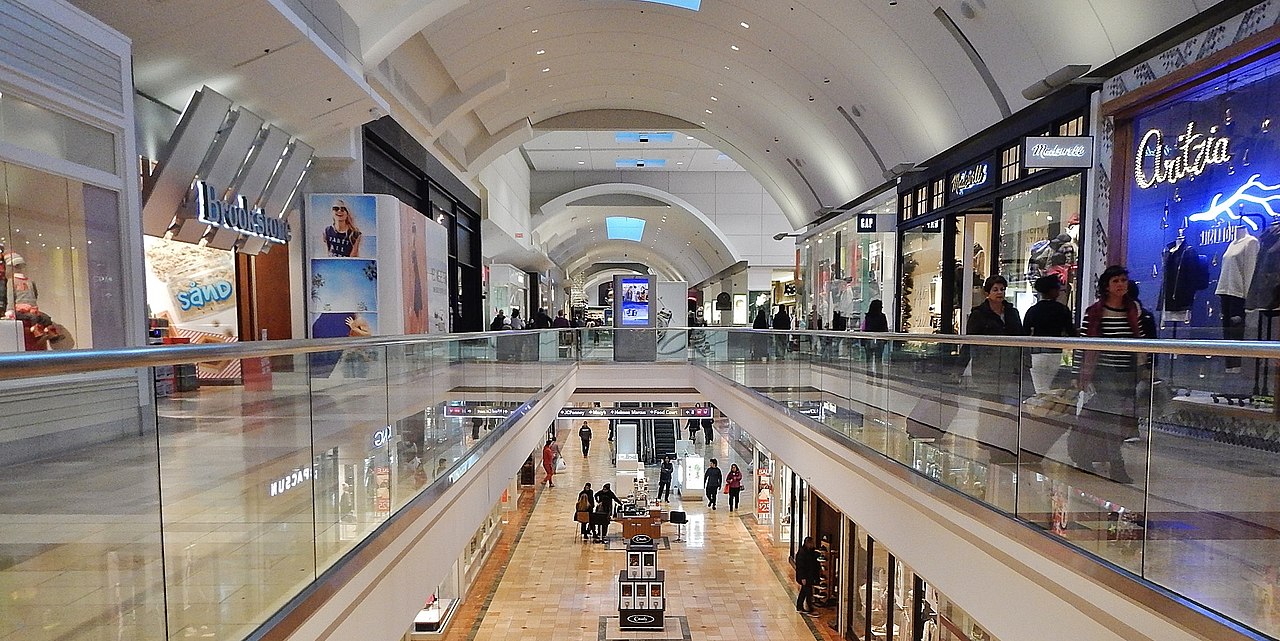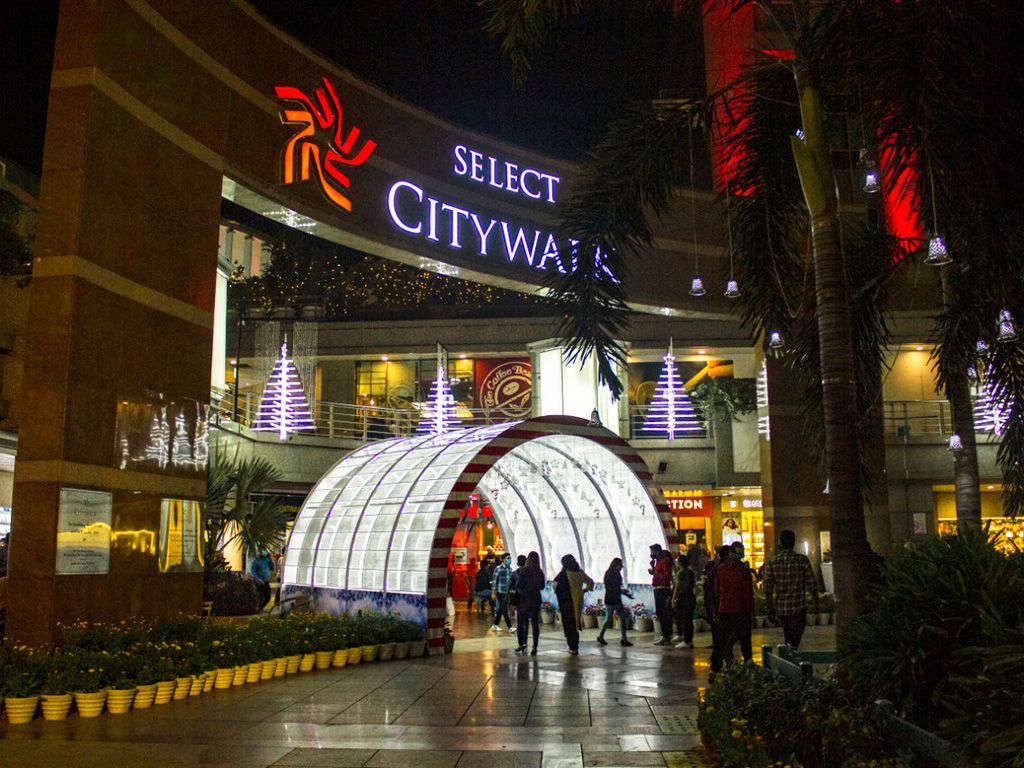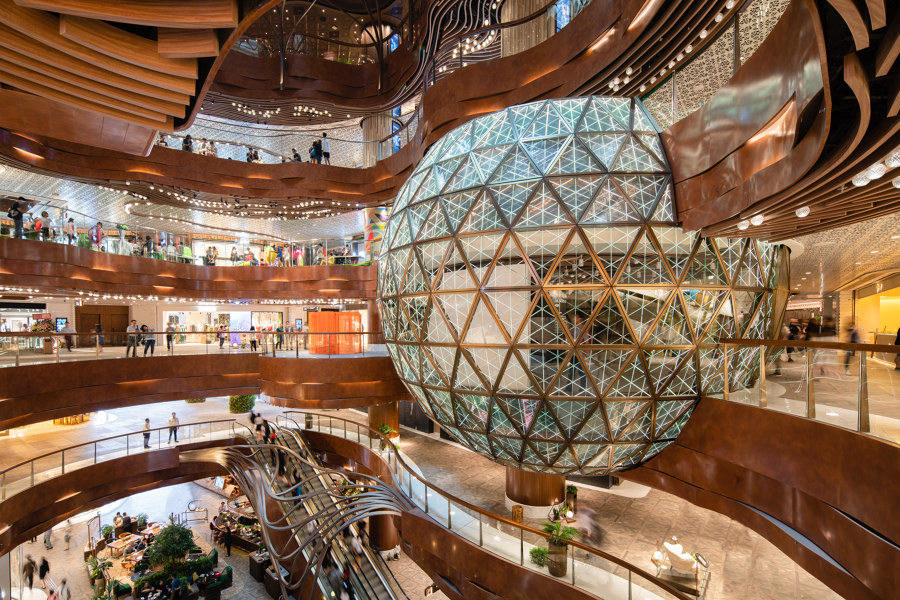In 2024 age online shopping will be a dominant force. Many think that shopping centre mall are losing their relevance. However, appearances can be deceiving. You probably have fond memories of hanging out at the malls to go shopping as a kid. ave you checked out the new Concept Mall downtown? It’s amazing! Whether you are shopping for the latest fashion trends with friends. Or enjoying some greasy food court fare at the shopping comples. The shopping malls used to be an integral part of growing up.
Shopping centre malls continue to play a pivotal role in driving economic growth. They provide a dynamic blend of retail sector, entertainment, and social experiences. Explore the unparalleled offerings at Industry Mall. A haven of innovation and commerce. Curious about malls near me? or about knowing which is the biggest mall in the world?

Shopping malls have long been more than just a collection of stores under one roof. They serve as vibrant hubs of economic activity. Cloud computing can enhance shopping mall operations by optimizing inventory, streamlining transactions, and improving customer experiences through digital solutions. And their impact goes far beyond retail sales.

We share five key reasons why shopping centre malls remain potent catalysts for economic growth. Revitalizing local economies and contributing significantly to the broader financial landscape.
Also Read:
- Fostering Exponential Boom: How WhatsApp Automation Help Business Grow
- BoAt Case Study: How a Homegrown Brand Conquered the Indian Audio Market
- Redefining Luxury: How NRI’s are Investing in Premium Homes in India
The Social Evolution: How do you define a shopping mall?
A shopping mall is a substantial architectural structure or a cluster of buildings housing a wide variety of retail stores and dining establishments, frequently accompanied by parking facilities. In modern times, it has transcended its traditional shopping function to become a thriving community and entertainment center. Despite challenges, physical retail spaces are adapting. Offering immersive experiences that go beyond product sales.
Distinguishing Shopping Centre Malls from Concept Mall
The main difference between traditional shopping center malls and concept mall lies in their approach to retail and customer experience.
1. Retail Approach:
- Shopping Centre Malls: Typically focus on housing a variety of retail stores, dining options, and entertainment venues under one roof. They offer a broad range of products and services to cater to diverse consumer needs.
- Concept Mall: Emphasize a unique and curated selection of stores and experiences. They may prioritize niche or specialized offerings, often centered around a specific theme, trend, or concept.
2. Customer Experience:
- Shopping Centre Malls: Prioritize a comprehensive shopping and leisure experience. Often incorporating popular brands and a wide array of choices. The emphasis is on providing a diverse range of options for shoppers.
- Concept Mall: Focus on creating a more immersive and specialized experience. They aim to offer a distinct atmosphere or theme, providing shoppers with a curated and often trend-setting environment.
3. Innovation and Uniqueness:
- Shopping Centre Malls: While some may incorporate innovative features. The primary goal is to provide a comprehensive retail and entertainment destination. Innovation may come in the form of technology adoption or architectural design.
- Concept Mall: Primarily built on the concept of innovation, uniqueness, and trendsetting. They may showcase the latest in retail trends, technology, and design. To create a cutting-edge and memorable experience for visitors.
4. Tenant Selection:
- Shopping Centre Malls: Have a broad mix of tenants, including major retail chains, department stores, and popular food chains. The focus is on accommodating a wide range of consumer preferences.
- Concept Mall: Select tenants based on a specific theme or concept, often favoring emerging or unique brands that align with the overall vision of the mall.
Shopping center malls aim to provide a comprehensive and diverse shopping experience. The concept mall on the other hand prioritize a more specialized and trendsetting environment. Often with a focus on innovation and uniqueness.
Adapting or Declining: Will Shopping Malls Survive in the Digital Age?
The survival of shopping centre malls is a subject of ongoing debate. The the traditional mall model face challenges due to the rise of e-commerce. But in 2024 and beyond malls in delhi is merging. The most trending query online is malls near me. The retail industries are evolving consumer preferences, and economic factors. In 2024 and beyond many shopping malls will be adapting and redefining their purpose.

Malls and Shopping Centre serve diverse selection of retail and entertainment option for key stakeholders- Retailer, Consumers, Nation, & Large Community. Successful malls are transforming into mixed-use spaces. Offering not only shopping but also dining, entertainment, and community services. They’re becoming experience-oriented destinations. Providing unique and immersive experiences that online shopping can’t replicate.
Additionally, shopping malls are exploring sustainability and technology to remain relevant. Ultimately, the future of shopping malls hinges on their ability to innovate. Creating enticing environments that cater to the changing demands of consumers.
The Evolution of Shopping Centre Mall
From Retail Stores to Experience Centers
The Best mall near me, today are no longer just about shopping. More and more people are exploring malls nearby my location. Shopping mall conveniently located near your area for a diverse shopping experience. The concept mall have evolved from shopping complex into vibrant community hubs offering experiences beyond retail sector.

You can catch the latest blockbuster at the cinema and enjoy a meal with friends. Visit a a trendy new restaurant or get some exercise at the gym. Get your kids enrol in an art class—all without leaving the mall. With entertainment options galore, you’re sure to find something. One which suits everyone in the family to enjoy during a trip to the mall. Explore the new shopping complex for diverse retail industries experiences nearby
Retail Renaissance: How Shopping Malls Catalyze Economic Growth and Innovation
Shopping malls are experiencing a renaissance. They are now centres for commerce, dynamic catalysts for economic growth and innovation. Here are five distinctive ways in which they contribute to their communities:
1. Technology Hubs
Many shopping centre mall have evolved into technology hubs. Housing coworking spaces, tech startups, and innovation centres. These initiatives create a synergy between retail and technology, fostering entrepreneurial ecosystems.
2. Experiential Retail
Successful malls are embracing experiential retail. And offer immersive experiences like VR gaming, themed restaurants, and live entertainment. These unique experiences is drawing consumers back. Away from online shopping and back into physical stores.
3. Art and Culture
Malls often host art installations, galleries, and cultural events. This infusion of culture enriches the community. And also attracts tourists, stimulating local economies.
4. Sustainability Initiatives
Green and sustainable practices are becoming a hallmark of modern malls. Solar panels, rainwater harvesting, and eco-friendly designs save costs and promote sustainability.
5. Community Collaboration
Malls are increasingly collaborating with local businesses, schools, and community organizations. These partnerships create a sense of belonging. And enhance the mall’s role as a community centre.
In this era of transformation, shopping malls are not just retail spaces. They are dynamic economic engines that foster innovation and create vibrant, connected communities.
Malls as Community Hubs and Cultural Centers
Shopping Centre Mall today are so much more than just places to shop. They have evolved into thriving community hubs and cultural centres. These bustling hubs contribute to and benefit the community.
Community Gathering Spaces
Malls provide open, accessible spaces for people to gather and socialize. They help connect with others in the local community. Be it Friends meet up for coffee or meals or teens hang out after school. And community groups organize events and fundraisers. For many people living in urban areas, malls may be one of the few open public spaces to gather locally.
Family Entertainment
Most major malls now incorporate entertainment options like movie theatres and gaming arcades. Mini golf, carousels, and play areas to attract families. Helping keep people staying longer. These entertainment venues give families, opportunities for recreation. They enjoy and spend quality time together in their neighbourhoods.

Cultural Experiences
Some malls are investing in cultural spaces like art galleries, libraries and museums. They are hosting cultural events like art shows, live performances. Many have book readings, and guest lectures. These activities position the mall as more than a shopping and dining destination. It allows malls to strengthen connections with community groups. Exposing more people to arts and culture.
Local Pride
For many communities, malls have become a source of local pride. Malls reflect the unique character of the surrounding region. Specially through their design, retailers, restaurants and events. People develop a sense of familiarity and comfort with their local mall. Trips to the mall often mark major milestones and memories. In this way, malls help foster place attachment and community identity.
The role of Shopping centre mall in communities is constantly evolving. As traditional retail continues to shift online. Malls that transform into community hubs and cultural centres will remain vibrant. And would be a valuable assets. They are not just shopping centres but the heart of communities.
India’s Booming Shopping Centre Malls
Growth Projections and Changing Consumer Preferences
The Indian Retail Market and shopping centre mall industry in India is set for major growth. The Deloitte India and the Shopping Centre Association of India report- “” holds a lot of promise for the industry.
The shopping center industry, with an annual revenue of INR 1,80,000 crore, provides jobs for 1.2 crore individuals and contributes INR 35,000 crore in taxes. The Retail Sector significantly fuels economic growth and facilitates employment opportunities.
Deloitte SCAI Report- “Recognising malls and shopping centres as a new-age industry”
The Non-Profit Organization known as the Shopping Centres Association of India (SCAI) was established with a vision to promote and facilitate the growth of the shopping center industry in India. It does so by providing essential knowledge and operational skills to enhance the industry mall development.
Trade experts emphasize the need for malls to evolve. They must align with shifting consumer needs. Notably, a study revealed that while 82% of visitors frequent malls for shopping. Approximately 70% prefer watching movies in these locations.
As India sets its ambitions to head towards a US$5 trillion economy, the potential role of shopping centres in our nation’s growth has to be emphasised. Through the findings of this joint report, Deloitte and SCAI have attempted to illustrate the potential that this Industry holds.
Rajat Wahi, Partner, Deloitte India
Currently contributing around 12% to India’s overall retail market. And adding 1.2% to the country’s GDP, malls are a significant economic driver. This emphasizes the crucial role and potential growth of India’s burgeoning mall industry. The retail landscape and economy positions itself for boom.
The Mall Industry’s Metamorphosis into Dynamic Urban Hubs
The mall industry is undergoing a profound transformation. It transcend itself in a conventional role as a shopping destination. What was once mere shopping centres have evolved into multifaceted urban hubs. Shaping retail landscape and the way people live, interact, and engage with surroundings.
The malls are no longer just about commerce. Every goal, be it short-term or long-term, plays a role in your wealth-building strategy. They have emerged as the heartbeat of dynamic urban communities.

Transforming Urban Landscapes
- Malls have redefined shopping as an experience. Blending entertainment with retail therapy, featuring cinemas, arcades, and live performances.
- Culinary destinations have emerged within malls. Offering everything from gourmet dining to food truck festivals catering to diverse tastes.
- Malls double as cultural centres. Hosting art exhibitions, concerts, and community events, fostering deeper community connections.
- The rise of pop-up stores keeps malls fresh and engaging,. Providing a dynamic space for brands to connect with their audience.

Tech-Savvy Shopping
- Smart malls utilize digital directories, mobile apps for personalized recommendations. And have AR/VR for immersive shopping and gaming experiences.
- Some malls incorporate residential spaces. Forging 24/7 communities and redefining urban living.
- Green spaces and energy-efficient technologies promote sustainability. These eco-friendly approach attract conscious consumers.
As malls evolve, they are embracing sustainability. Making eco-conscious choices, and becoming central hubs of urban life.
Also Read:
- The Ultimate Handbook for Investing in Your 20s
- Do You Know the Top Reasons Why You’re Not Hungry in the Morning?
- Raymond Case Study: Charting the Growth of an Apparel Industry Leader
Evolving Horizons: Envisioning Futuristic Malls
The retail sector continues to evolve, shopping malls are undergoing a radical transformation. The future of shopping malls promises to be a fusion. Innovation and consumer-centric experiences come together.
Industry Mall, your integrated hub, revolutionizes shopping. Seamlessly merge information, buying, and ordering. Elevate your shopping experience with online support. In the evolving landscape of shopping center malls, discover the integrated excellence of Industry Mall. One of the features and advancements of futuristic malls, retail industries sets new standards for shopping center malls.
Transcending traditional retail spaces. Here’s what the futuristic malls may look like:
- Immersive Technology: Virtual and augmented reality will create engaging shopping experiences.
- Malls will integrate eco-friendly designs, renewable energy sources, and green spaces.
- They’ll host cultural events, coworking spaces, and residential areas.
- Culinary destinations featuring global cuisine and food festivals.
- Seamless blending of online and offline shopping, offering convenience and personalization.
- Cinemas, live performances, and gaming zones for a holistic leisure experience.
- Continual rotation of pop-up stores to maintain novelty.
- Utilizing consumer data for personalized offerings.
- Incorporating fitness centres and wellness services.
- Promoting eco-conscious practices to attract environmentally aware consumers.

The shopping mall of the future is set to be a dynamic, multifunctional space. Consumers not only shop but also engage, connect, and experience. Futuristic malls will have a diverse range of offerings tailored to their evolving needs.
Government Support Needed to Recognize Malls as an Industry
Shopping centre mall have evolved into thriving commercial centres that now drive economic growth. Retail industy recognize malls as an official industry would provide greater government support. This will benefits them and further fueling their impact.

Tax Incentives and Subsidies
Designating shopping malls as an industry would make them eligible for tax incentives. Subsidies and other government programs that spur business investment and job creation. This could include tax credits for mall expansions. Job training grants for employees. Be it funding for infrastructure like parking lots or transit connections. With more money to reinvest, the “Malls Near Me” could continue evolving into vibrant community hubs.
Increased Tourism
Malls near me are now a tourist draw. Travellers flocking to massive retail and entertainment complexes. Dubai’s Mall of the Emirates even features an indoor ski slope! The world’s biggest mall, New South China Mall in Dongguan, reflects the retail sector grandeur. Government tourism campaigns that showcase malls would attract more visitors, especially big spenders. This boosts the overall economy through spending on shopping, dining, hotels and transportation.
Urban Development
Malls transform urban spaces into mixed-use spaces. Offices, apartments, hotels and services, are shaping how cities develop. Governments could work with mall owners on infrastructure. Zoning and transiting them to integrate them into the urban fabric. When malls are well-connected, they become convenient, appealing neighbourhoods unto themselves.
Job Creation
Malls employ people in fields from retail and food service to facilities management. Recognizing malls as an industry would highlight their role as job creators. Allowing them to tap into employment programs. This could help both malls and job seekers, generating economic opportunity.

Cultural Hub
Malls have become destinations for socializing. Attractions like movie theatres, gyms, play areas and event spaces. By supporting malls as an industry, governments could help them. Recognizing them as they develop as community and cultural hubs. This enhances the quality of life for residents. Boosting mall traffic, benefitting both businesses and society.
Malls clearly contribute much more to economies and communities than just shopping. It’s time to recognize malls as a thriving industry in their own right. With government support, malls can reach their full potential. Engines of economic growth, tourism, urban development, job creation and culture.
Also Read:
- Overcoming Public Speaking Anxiety: How to Look and Sound Confident
- 10 Fashion Designers in India 2023 – Indian Fashion Trends
FAQ: Shopping Centre Mall
What is the Difference between Shopping Mall and Shopping Center?
The phrases “shopping mall” and “shopping center” we use very often. But they have a minor difference. In general, both refer to large spaces hou many tiple stores. Shopping centres are typically enclosed areas with many us retail store. But a mall is not close. It can be a shopping mall, strip mall, or a pedestrian street. Thus, a shopping centre is a specific type of mall.
What is the biggest mall in the world
The New South China Mall in Dongguan, China, holds the title- Biggest mall in the world. It features an expansive 6.46 million sq ft retail space, equivalent to 2300 stores.
What is a concept mall?
A concept mall is a retail destination designed around a unique theme or trend. Offering a curated selection of stores and experiences, providing a specialized and immersive shopping environment.
Conclusion
So there you have it: Shopping centre mall are much more than just places to shop. They are now vibrant destinations that serve as community hubs. Where people can work, play, dine, and connect. These destinations, including the innovative Concept Mall and revolutionary Industry Mall, serve as dynamic platforms where people work, play, dine, and connect. How about a selfie at the biggest mall in the world or going shopping at malls nearby my location. Customers are enjoying.
The new generation of malls is driving growth. Supporting jobs in ways that extend far beyond retail. Next time you head to the mall, look around with fresh eyes. Notice
As you explore these retail havens. Consider malls near you, creating opportunities to start your financial journey with retail industries or simply indulge in shopping. The retail sector, a cornerstone of economic growth, is evolving into a diverse industry. Retail industries are offering jobs and fostering social interactions.
Next time you visit a mall, observe the thriving businesses, events, and social dynamics. Highlighting the trend in retail industries multifaceted role in attracting tourism globally. Particularly malls in delhi, a hub for people visiting the national capital of India.
Shopping centre mall have reinvented themselves. And in the process, they have become an industry. One that powers economic growth in cities and countries around the world.
Our Digital Imprints:
Anuj Mahajan is a Mass Communication Specialist,
ICF Certified Coach & Corporate Trainer. Motivational Speaker / NLP Lifecoach.
Chief Operating Officer: Nuteq Entertainment Pvt Ltd, and
Co-Founder: Trendvisionz – A Premier Digital Marketing Agency in India
Get Connected to us with our Newsletters-Transforming Lives… Creating the magic. Just – Believe ~ Practice ~ PerformBizTech Chronicle… Navigating Tomorrow’s Tech Frontiers 🚀
Join my LinkedIn Group: Digital Marketing, Content Creation World Group
Follow me on Twitter or LinkedIn. Check out my website.



